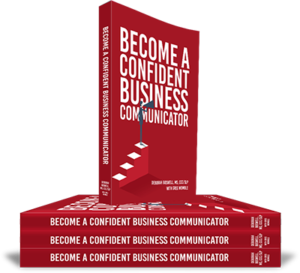I have a colleague who prides himself on knowing a little about a lot of topics. Let’s call him Donald. He says he knows enough to get a conversation going and then lets the other person take over, learning from him or her as the conversation progresses. Donald is a top salesman for his company. He scours newspapers and articles for exposure to different business, sports and personal development topics so he always has something to say. But it doesn’t come out of Donald’s mouth as rote information; he’s adept at processing the tidbit, mixing it with a thousand other thoughts and experiences (the word “synthesis” comes to mind), and expressing it as something that’s authentic to him.
Then, his conversation partner speaks and Donald listens. He absorbs that information and the process starts again.
Most of us in the business and corporate world can relate to Donald’s process because, really, it’s our process, too. It’s creating and communicating verbal messages that are relevant to the listener and in context to the situation or subject being discussed.
This process doesn’t come easy to Donald just because he loves to talk, but also because he loves what he does.
Those who love their work are fortunate and are rarely at a loss for something to say. When you are motivated or rewarded by your work, talking about your expertise is easier. I have often said that I would do what I do for free if I didn’t need a paycheck to live.
In church once, our pastor asked facetiously, “How many of you can’t wait to go to work tomorrow?” My knee jerk response was to raise my hand. I remember starting to put my hand up and then sheepishly bringing it back down. My husband, Steve, looked at me and grinned, for two reasons, I think. One, because the pastor was asking a hypothetical question and, two, because Steve knows my heart.
If you don’t love what you’re doing, seek some career counseling. In the meantime, find one aspect of your work that you do love or enjoy. Write about it. Discover more about it. Compare it to what people in other industries are experiencing. Find parallels between that aspect and things you love and enjoy about your personal life.
Soon, you’ll find yourself talking about it.


